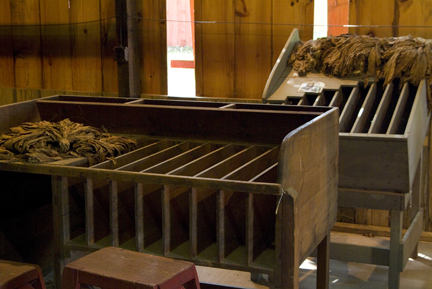
The Modern Butlers’ Journal volume 8, issue 5
International Institute of Modern Butlers
 Message from the Chairman
Message from the Chairman
One of our colleagues in the profession is on trial because he took action to protect his employer and family, as he saw it. Details below, but I look forward to your comments on the subject. Any one of us could find ourselves in a similar situation in the future, so it would be good to learn from this situation, perhaps.
Letters to the Editor
A quick question for which I have found no answers in etiquette literature about funerals: are we expected to write “Thank you” letters only in response to condolence letters, or to those who signed a funeral book as well? For the former there is no doubt the answer is yes, of course; but for the latter I am note sure if one is expected to write to them, especially if the individuals did not leave their address. GL
Ed: I am not aware of any formal statement on this matter, and it would be hard to create points of etiquette to cover every single eventuality in life: there has to be a point where common sense and application of basic concepts takes over. In this case, I would suggest that a “Thank you” is not required or expected for simply signing one’s name; but it would certainly be courteous to thank an individual for coming and sharing in the experience and homage if they chose to fill out their address—in a way signaling some further communication would not be amiss.
****
The following exchange with a butler in the Americas might be instructive for other butlers who sometimes feel that they are not in the ideal position and feel inclined to look elsewhere—often, a little patience will see things come out right.
I graduated from a Butler School a year ago and am finding my family a little stressful to work for, as the Mrs. is never happy with anything we (the staff) do. It gets you down when you put everything into a job only to have them ignored. I am thinking of leaving even though it’s not good to be at a job for only a year. Have you heard of other butlers in similar situations to mine?
Ed: Thank you for asking. Sorry to hear you have been experiencing what many other butlers have learned the hard way: to vet employers before working for them, just as they vet you. That is why we recommend at least a month and preferably a three-month trial period before moving in lock, stock, and barrel, committing to a relationship that may not work out either way. Of course, as with any relationship, it takes some give and take and tolerance to make it work, and there is always the possibility that a relationship could be made viable, even if not ideal. However, if the employer is never happy with anything done, even when it is very well done and according to her wishes, then you are better off ending the relationship, even if it will make future potential employers look askance at you, wondering if you are a job hopper. The alternative, as you say, is you will be gotten “down,” and it will be repeatedly until you stay down. Decisions, decisions, decisions, but to answer your question, yes, your situation is not unusual: this is Planet Earth, after all, where things do not always follow the ideal.
You will be pleased to know that I and the other student at the butler academy both had your book at our sides and used it to verify and supplement discussions, etc. Anyway, I am committed to giving two-months notice even though my contract says nothing about any notice being required: I would like to know they have a suitable replacement lined up.
Ed: I am glad to hear the book was useful. Yes, that is enough notice, and it is good you would like to ensure there is someone to replace you. I wish you well wherever you end up.
I just spoke with my placement agency. They tell me the current house manager will be replaced at the end of the month. The placement agency would like me to give this new leader a chance and see if it improves things within the house. They also said four week notice would be brilliant. This is not a problem for me.
Ed: On the new leader, is the problem something else, or is it the Mrs.? If it is the Mrs., then a new leader will run into the same issue. If it be the current leader, and he has made everything so bad that the Mrs. is quite correct to be upset at everything being done, then I could understand your being willing to continue. Just a thought about the inconsistencies.
The problem is with both, but I think the leader certainly does not help the current situation. I will see if Mrs. is more reasonable with a more organized leader in place. Thanks for you time and advise.
***
Thank you so much for your article. Yours are always worthy reading. MR, Magazine Editor
Butlers in the Media
Pascal Bonnefoy, the former butler of L’Oreal heiress, Liliane Bettencourt, has been charged with violating her privacy after he secretly recorded her conversations with advisers to prove they may have been manipulating his aged employer. He handed the information over to his employer’s daughter who was attempting to stop others from taking advantage of her mother.
Was he correct to have done this? It is a good example of a tricky, real-life situation with various angles to consider. Please feel free to write your thoughts.
One angle is that of ethics, and this is raised, also, in the matter of the upcoming movie, The Butler, about Eugene Allen, the White House butler between 1952 to 1986. Forest Whitaker will portray him and Oprah Winfrey is apparently playing Mrs. Allen, with Jane Fonda, Hugh Jackman, Liam Neeson, and John Cusack reportedly portraying various presidents and their wives. This much may not be so new, but the movie does include interplay with the butler’s son, who is an activist who is repeatedly arrested, and which does rub off on the butler toward the end of his life—even though, naturally, he is a conformist—when he makes a decision to fight (according to Forest Whitaker). This theme repeats one first broached in Remains of the Day, when fellow butler Mr. Benn questions Mr. Steven’s blind support for questionable activities on the part of his employer.
***
Butlers, Real and Unreal
The Jerusalem Post carries a story entitled “An Executive Butler” which describes an enterprising gentleman who runs a cleaning company and concierge service.
Similarly, Glenn Close’s excellent performance as a hotel waiter in Albert Nobb has the character still being described repeatedly in much of the media as “a butler.”
A good article on Sean Davoren, Head Butler at the Savoy in London.
Cigars, Part III
Harvesting & Processing Tobacco Part 2
For the next step in the process, the tobacco will typically travel to the factory where it will be rolled into cigars. Here the leaves are sorted according to how they will be used; small or broken leaves for the filler, large course leaves for the binder, and large fine (often shade-grown) leaves for the wrapper.

Each type is collected into bunches of 10 -15 leaves called “hands” and placed together with similar leaves to ferment. The leaves may ferment in a wooden box or cask called a hogshead, or they may be moistened and stitched up in a burlap-covered bale. In the 18th century, hogsheads were popular for shipping, as the tobacco packed in the New World would ferment en-route to the cigar-making establishments in Europe.

For cigars rolled in the country of origin, fermentation took place in the cool cellars of the tobacco rolling factories. These cellars are still used for some Cuban brands today as the temperature inside remains fairly constant, making them ideal for the task.
Fermentation can take as little as six months, but for fine cigars it usually takes anything from two to five years. Of all the tobacco production processes, none has as much effect on the flavour, aroma and burning characteristics as the fermenting process.
Once the tobacco has been fermented, it is ready for rolling. The bales or hogsheads are broken up and the leaves separated. The spine of the leaf must be removed to allow the leaf to burn evenly. This can either be done with a treadle-operated machine, or by hand with a knife mounted on a thimble—a small cut being made near the tip of the leaf and the spine pulled down. The cut leaves are stacked in piles called books or pads and may even be wrapped up in bales for further fermentation.
When the leaves are ready finally for rolling into cigars, the bales will be broken up for the last time and the leaves steamed to restore lost humidity before they are sorted yet again.
Before the finished cigars are shipped, they will be sorted a few more times and graded—a process requiring great skill and experience (most visitors to cigar factories are not able to see any difference between the leaves in adjacent piles), thereby contributing to the quality and consistency of the final product. A fine, handmade cigar costs as much as it does in part because it will have been handled by as many as forty pairs of hands before the consumer ever smokes it.
Next month we look at an even more advanced skill, that of rolling the cigar.
Let’s Talk about Wine, Part V
 by Amer Vargas
by Amer Vargas
Champagne, Part II
So, what does “Méthode Champenoise” involve today? The starting point is the same as any wine making, that is, harvesting the best grapes at the right time after months of very attentive care, and taking them for pressing shortly thereafter. For Champagne, the harvest is carried out earlier than grapes for other kinds of wine, to take advantage of the low levels of sugar and the higher levels of acidity. Then, with regards to the pressing, in the case of Pinot Noir and Pinot Meunier it’s done without allowing the must to stay in contact with the skins, so that it doesn’t extract the color—except in the case of musts that are used to make pink Champagne. The first 2,050 liters out of 4000 kg of grapes is called cuvee and is the must that will produce better and more delicate wines, whilst the must after that, called taille (tail), produces coarser wines. Some vintners use only cuvées to produce their champagne, which assures a very high-quality libation.
Vary rarely, the musts are fermented in barrels, as stainless steel tanks allow a tighter control of the changes in the first fermentation that lasts around 15 days.
After the first fermentation, vintners decide whether to bottle the wine on their own or make a cuvée (yes, like the first wine coming out of a batch of grapes), meaning blending the wine of one main varietals with other wines from the other main varietals, or with a very little percentage of a different grape.
From here on, the wine will age in the bottle after adding a little bit of rock sugar and a few grams of yeast. The bottle is topped with a crown cap and allowed to age no less than 15 months for non-vintage (wines from different years) or three years or more for vintage (wines from a particular, generally excellent, year).
What happens is that the yeasts will develop in the wine and so produce carbon dioxide. As the gas cannot escape, the C02 dissolves in the liquid and thus Champagne acquires its characteristic effervescent condition.
As Dom Pérignon improved, the bottles that hold Champagne (and generally speaking, any sparkling wine) are a bit thicker than the regular wine bottles, having a “dome” at the bottom called a “punt” that increases the strength of the bottle base to prevent it from exploding.
The second fermentation starts with the bottles lying horizontally, and during the ensuing, months, their position is changed until they finish vertical and upside down; at the same time, either mechanically or manually, the bottles are twisted so that the lees (remains of yeasts and sugars) accumulate in the neck of the bottle, forming a debris cap.
When the second fermentation has finished, the neck of the bottle is frozen in order to solidify this debris, the crown cap is removed, and the pressure inside the bottle forces out the debris.
Care of Silver
by Jeffrey Herman
Silver Terminology
Tarnish
Tarnish on silver is a thin layer of mainly of black silver sulfide caused by the silver’s chemical reaction with sulfur-containing compounds such as hydrogen sulfide in the air. Tarnish appears as a yellow, gray, or black film on objects, and the corrosion process slows as the silver sulfide layer thickens. Clean silver tarnishes more rapidly than tarnished silver.
For complete instructions on how to remove tarnish and enjoy using your silver with little or no care, please visit my Silver Care Guide. If you have questions not addressed on that page, please feel free to contact me.
Patina
In the decorative metals world, patina can mean:
(1) The fine scratches on an object that have developed over time from its handling and polishing;
(2) The natural darkening that occurs in the recesses of ornamental pieces and engraving; or
(3) An applied chemical used to color metal.
The coffeepot pictured below was cleaned with Tarn-X, which removed the factory-applied coloring.
The next image illustrates how the restoration of the factory-applied blackening in the recesses makes the design “pop.”
Next month, Mr. Herman will discuss the lacquering of silver in an effort to prevent tarnishing, and how to remove that lacquer.
Mr. Herman is the owner of Jeffrey Herman Silver Restoration & Conservation located in West Warwick, RI. He can be contacted via email jeff@hermansilver.com or by phone 1-800-339-0417. Or visit his website at www.hermansilver.com
Please subscribe
at the top right of this page
to continue to receive these newsletters.
Follow us on Facebook and Twitter
The Institute is dedicated to raising service standards by broadly disseminating the mindset and skills of that time-honored, quintessential service provider, the British Butler, adapted to the needs of modern employers and guests in staffed homes, luxury hotels, resort, spas, retirement communities, jets, yachts, & cruise ships around the world.






